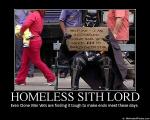I will continue my concerns on the Mil Review article:
Understanding the war, Arusha, and the genocide
Although it maybe convenient to essentially call this a squabble between Hutu and Tutsi, the crisis and was anything but simple. It was not a failure" to form a mutually nurturing society'" between Tutsis and Hutus that led to war and then genocide. In many ways the war began in 1960 with the move to independence. From the Hutu hardliner perspective, the aim was simple: dominate and if necessary exterminate the Tutsis and ultimately any Hutu who challenged them. The hardliner reasons for that policy were complex. Certainly there was a solid ethnic core of resentment and hatred of the Tutsis within the hardliner agenda. But the hardliner agenda was as much as against any Hutu challenge to the MRND grasp on power as it was against the Tutsis. With the opening of the political system in the early 1990s in tandem with the RPF invasion, much of the hardliner political violence was against the moderate Hutus. I use the term hardliner because even the most moderate of Hutu political parties had a hardliner element that split into a separate wing of the party. The National Defense Committee (CND) emerged from hardliner elements in the MRND, shepherded by Madame Habyarimana clique. That clique orchestrated much of the pre-genocide anti-moderate violence in a effort to hold onto their privileged status. For them, the war was an all or nothing struggle, a stance given to final solutions such as genocide.
For the RPF, especially with Paul Kagame in command of the army, the war was won when discussions began at Arusha. From then on, the RPF used military force as a means to move those discussions forward. When the former regime began to stall and also sent its gangs to kill Tutsis in government-controlled territory, Kagame unleashed an RPF offensive in early 1993, halting some 15 miles from Kigali and withdrawing as part of an agreement to resume the talks. Only with the resumption of the war in April 1994 and the genocide, did the RPF objective change to military victory, as in miltary domination of Rwanda.
The same absolutists versus incremental dichotomy prevailed in the Arusha talks. The government delegation and its associated Hutu political parties approached the talks like the President; a stall tactic and an opportunity to wear down their enemies internal (other Hutu challengers) and external (the RPF). In contrast, the RPF delegation took the talks seriously and they came prepared. They "won" the negotiations process as handily as Kagame's army won on the battlefield. Where both sides at Arusha failed was in the exclusion of the hardliner CND. The RPF said the CND members had too much blood on their hands and would not accept them. The Hutus at the negotiations were content to allow that exclusion. In retrospect, if there was any opportunity for amnesty as proposed under the AR2 model to work, it was during Arusha and would have required accommodating the CND. Arusha was a form of amnesty--its central flaw was that it exluded those who were most likely to unhinge it, the hardliners of the CND. The opportunity for such an amnsety was therefore slim, and one not fully taken.
The signing of the Arusha accords on August 1993 began an eight-month long interim where by the UN deployed UNAMIR to monitor and assist in the implementation of the agreement and assist in the security of Kigali. UNAMIR hand neither the mandate nor the manpower to "enforce" the Arusha accords. The RPF moved a battalion into Kigali and took up an aggressive defensive posture while waiting developments. The government under Habyarimana stalled and the hardliners probed for triggers to set of a holocaust, preferably one that would prompt the withdrawal of UNAMIR. Of course that came with the shoot down of the President's plane as it returned from Dar es Salaam, Tanzania. Although I have always felt that logic and motivation to assassinate the President pointed to the Hutu hardliners, no source allows the absolute surety necessary to say that it was the Presidential Guard. The shoot down triggered the genocide; it did not spark it. The genocide was set for execution and the shoot down set it in motion.
Genocide was an absolute last throw of the dice for the hardliners. Colonel Bagasora was a key player in forming a new government willing to put genocide into play. He was not, however, a solitary actor and he could not have single handedly put a new government in place. The trials of the International Criminal Tribunal at Arusha have proved that beyond doubt. Genocide began slow and spread outward; the government used the communal government system, the militias established by the MRND and CND, and all elements of the security forces to carry out its plans. Where frenzy entered into the equation was when the government frantically tried to get the "work" done before they lost the war militarily. Like the Nazis of WWI who kept the trains and extermination camps running as long as possible, the hardliners kept the genocide going until they finally withdrew into Goma and Bukavu. The French Operation Turquoise to a large degree made it safer for the hardliners to continue killing their victims inside the protected zone. For discussions of the French role, I would recommend Andrew Wallis, Silent Accomplice: The Untold Story of France's Role in the Rwandan Genocide as well as the books by Linda Melvern and Stephen Kinzer. See also Gerard Prunier The Rwanda Crisis: History of a Genocide; Prunier was with the French headquarters.




 Reply With Quote
Reply With Quote






Bookmarks